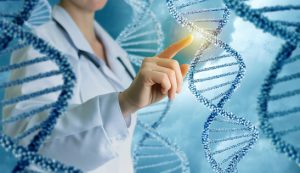 The heart is one of our most important organs because it pumps blood throughout the entire body. Coronary artery disease (CAD) involves the blood supply of the heart, and when compromised, it can even cause death. In fact, coronary artery disease is the number one cause of death worldwide.
The heart is one of our most important organs because it pumps blood throughout the entire body. Coronary artery disease (CAD) involves the blood supply of the heart, and when compromised, it can even cause death. In fact, coronary artery disease is the number one cause of death worldwide.
We don’t really understand the causes of CAD. However, new research has found 15 risk genes for coronary artery disease.
Genetic risk for heart muscles
Advertisement
The heart is like any other organ in the body. It is made up of cells and it requires oxygen and nutrients to help maintain its function. The heart receives these components by having its own blood supply, coming from the coronary blood vessels. If these blood vessels were to become damaged or diseased, there would be decreased blood flow. This can cause CAD symptoms including chest pain, shortness of breath, and even sudden death due to a heart attack.
To help identify genetic risk for coronary artery disease, the researchers studied the genetic variants of over 250,000 participants including more than 88,000 patients with coronary artery disease. The researchers found 15 new risk genes to help predict the disease. Interestingly, these genes were associated with many functions taking place in the cells that line blood vessels.
“Coronary artery disease tends to cluster in families and has a strong genetic basis; however, we do not fully understand that genetic foundation. We conducted the largest genetic analyses on coronary artery disease to date, including information from people of European, African, South Asian, and East Asian heritages,” said senior author Danish Saleheen, assistant professor of epidemiology and biostatistics at Penn University.
Increased understanding
This discovery may promote future research into the prevention of coronary artery disease by utilizing a treatment that better targets cells in coronary blood vessels. The researchers were able to make this finding by using single nucleotide polymorphism. This method allowed them to analyze differing genes from person to person. The genes relating to coronary artery disease were seen to play a role in the stickiness of cells, coagulation, and inflammation as well as the differentiation of smooth muscles cells.
“Next, we aim to identify the exact biological mechanisms at these 15 novel sites in the genome that lead to the development of CAD. Greater understanding of such pathways should ultimately lead to development of new therapies for CAD,” said Dr. Saleheen.
